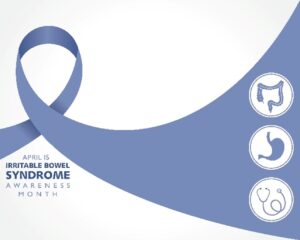IBS Awareness Month
It’s IBS Awareness Month. During April, it is our duty as healthcare professionals to increase public knowledge and understanding of IBS, including its symptoms, diagnosis, and management. Irritable bowel syndrome (IBS) is a chronic gastrointestinal disorder that affects the large intestine. This common condition affects up to 15% of the global population. This condition can cause significant discomfort and distress, affecting one’s daily life and overall quality of life.
At the Medical Group of New Jersey, gastroenterologists are trained to diagnose and treat patients with IBS. We provide patients with the support and guidance they need to manage their symptoms and improve their overall quality of life.
Symptoms of IBS
The symptoms of IBS can vary from person to person, but some common symptoms include:
- Abdominal pain or cramping
- Bloating
- Gas
- Diarrhea
- Constipation
- Mucus in the stool
Symptoms of IBS can be very distressing and may affect a person’s daily life, including their ability to work, socialize, and travel.
Diagnosis of IBS
Diagnosing IBS can be challenging because the symptoms can be similar to those of other gastrointestinal disorders. One of our gastroenterologists in New Jersey can help diagnose IBS by conducting a thorough medical history, physical examination, and diagnostic tests. These may include blood tests, stool tests, colonoscopy, and imaging studies such as an ultrasound or CT scan.
Managing IBS
While IBS cannot be cured, it can be managed with proper treatment and lifestyle changes. Treatment options may include:
- Dietary changes: Certain foods can trigger IBS symptoms. Our gastroenterologists can help you identify and avoid these trigger foods.
- Medications: There are several medications that can help manage the symptoms of IBS, including antispasmodics, laxatives, and antidepressants.
- Stress management: Stress and anxiety can trigger IBS symptoms. A gastroenterologist can help you learn stress management techniques to reduce the impact of stress on your symptoms.
Living with IBS
Living with IBS can be challenging, but there are things you can do to manage your symptoms and improve your quality of life. Some tips include:
- Maintain a healthy diet: Eating a balanced diet that is rich in fiber can help manage IBS symptoms.
- Stay hydrated: Drinking plenty of water can help prevent constipation and diarrhea.
- Exercise regularly: Regular exercise can help manage stress and improve bowel function.
- Get enough sleep: Getting quality sleep can help reduce stress and fatigue, which can exacerbate IBS symptoms.
If you are experiencing symptoms of IBS, speak to a gastroenterologist at the Medical Group of New Jersey who can help diagnose and manage your condition. During IBS Awareness Month, let’s work together to increase public knowledge and understanding of this condition, and support those who are living with it.
Contact us today to schedule your appointment.